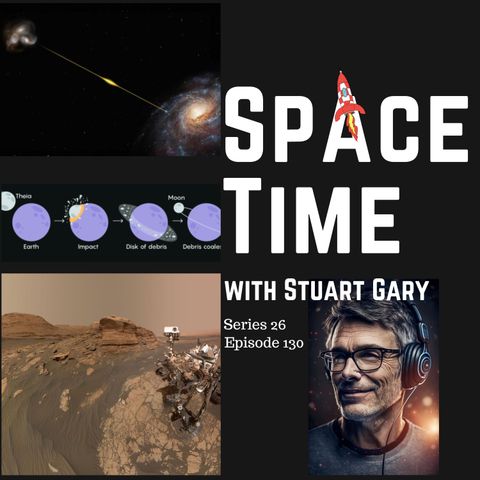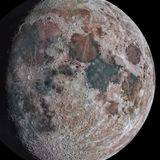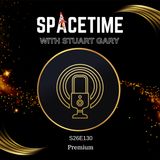The Space News Podcast. SpaceTime Series 26 Episode 130 *The most distant fast radio burst ever Astronomers have identified the most distant Fast Radio Burst ever detected. The ephemeral cosmic blast which has been catalogued as FRB 20220610A occurred some eight billion light years away.
*The Moon is 40 million years older than previously thought A new study of lunar rocks brought back by the Apollo 17 astronauts shows that the Moon is some 40 million years older than previously thought. The findings reported in the journal Geochemical Perspectives Letters suggest the Moon accreted from ejecta debris some 4.46 billion years ago – 40 million years earlier than the 4.425 billion years previously thought.
*Curiosity rover finds new evidence of ancient Mars rivers, a key signal for life New analysis of data from NASA’s Mars Curiosity rover suggests that many of the craters on Mars today could once have hosted habitable rivers. The findings reported in the journal Geophysical Research Letters are based on numerical models which simulate erosion on Mars over millennia.
*The Science Report The world is heading toward six global warming tipping points past which the planet’s systems will no longer be able to cope. A new study looking at why people like fatty foods so much suggests it might be the texture. Discovery of a new species of coral reef fish in the southern waters of the Great Barrier Reef.
Skeptics guide to the spirit of vaccination.
And our regular guests: Alex Zaharov-Reutt from
www.techadvice.life Tim Mendham from Australian Skeptics Listen to SpaceTime on your favorite podcast app with our universal listen link:
https://spacetimewithstuartgary.com/listen and access show links via
https://linktr.ee/biteszHQ Additionally, listeners can support the podcast and gain access to bonus content by becoming a SpaceTime crew member through
www.bitesz.supercast.com or through premium versions on Spotify and Apple Podcasts. Details on our website at
https://spacetimewithstuartgary.com For more SpaceTime and show links:
https://linktr.ee/biteszHQ If you love this podcast, please get someone else to listen to. Thank you…
To become a SpaceTime supporter and unlock commercial free editions of the show, gain early access and bonus content, please visit https://bitesz.supercast.com/ . Premium version now available via Spotify and Apple Podcasts. For more podcasts visit our HQ at https://bitesz.com






